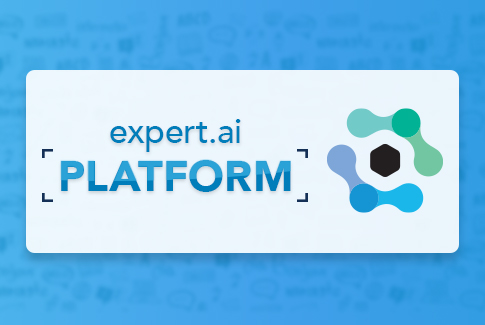
The accuracy of natural language understanding (NLU) models can vary widely, from a low of 45% to a high of 90%. Why the disparity? Because different types of AI can be used to help machines acquire knowledge, these variations can result in different outcomes.
While machine learning (ML) is highly automated, it can be plagued by bias that distorts language understanding or intent. Symbolic AI leverages a knowledge-based approach that requires domain expertise, but it can be difficult to scale. What’s needed is the best of both worlds—the ability to embed domain knowledge in ML at scale. Let’s take a minute to explore how this approach improves NLU outcomes.
The Role of Domain Knowledge in NLU
Domain knowledge provides information on a specific discipline or field in which AI and ML algorithms operate. Imagine, for example, how ineffective an NLU application would be for an insurance company if it didn’t understand what was meant by “term life insurance,” “whole life insurance,” or” premium payments.” Domain knowledge can help NLU applications understand and interpret life insurance concepts and terms.
Consider the challenge of purchasing life insurance from a sales representative. Without domain knowledge of insurance terminology and jargon, you can misunderstand what’s being told to you. A deep knowledge of the life insurance domain would make it easier for you to understand these concepts.
Likewise, legal contracts contain terms and concepts that are familiar to attorneys but foreign to the general population. Lawyers get their domain knowledge from law school plus years of experience. This acquired knowledge makes them experts in deciphering legalese and contracts. For an NLU application to work for a law firm, it needs a knowledge base of legal terms and concepts to analyze data effectively.
How NLU Acquires Domain Knowledge
While the need for domain knowledge in NLU is clear, there are different ways to infuse this knowledge into NLU applications. Let’s take a closer look at the two different ways this can work.
Machine Learning
ML is a data-driven, programmatic way to introduce domain knowledge to NLU applications. It uses machine-to-machine learning where the machines determine the algorithms for decision making. These machines collect domain knowledge from data and use it to train other machines.
Consider our life insurance example. Insurance companies operate in data-rich environments where machines collect and analyze massive data sets. This analysis results in models used as a basis for decision making. However, if data is misinterpreted, models will be flawed. For this reason, there is always the possibility of inaccuracy in ML because there is the potential for a machine to misinterpret data.
The advantages of machine learning are speed and autonomy. A lot of data can be processed quickly, making it fast and easy to scale domain knowledge to accelerate the development of NLU applications.
Symbolic AI
Symbolic AI is knowledge-driven, relying on domain expertise from human subject matter experts. Humans write and change the rules for symbolic AI algorithms. This results in NLU models that have complete transparency into how outcomes are derived.
With symbolic AI, humans supply the knowledge that defines classes, properties, and hierarchies. Humans embed this domain knowledge in symbolic AI to train machines to understand in a way that humans do.
Because symbolic AI is a human-driven process, it isn’t easy to scale. Subject matter experts must develop prototypes of algorithms and adjust them based on outcomes. Yet, with the demand on NLU program managers to bring applications to market, there is a need for speed. The question becomes how we can embed domain knowledge at scale to develop NLU applications competitively.
Best of Both Worlds: Hybrid AI
Hybrid AI delivers the best of symbolic AI and ML. It uses an embedded domain knowledge for machine learning at scale. This ensures that machines learn with accurate domain knowledge while accelerating the training of machines through automation. Key advantages of embedded domain knowledge are:
- Accuracy. Accurate domain knowledge overcomes the biases and limitations of ML.
- Speed. Embedded domain knowledge in ML models accelerates outcomes.
- Customization. Domain knowledge can be augmented with subject matter expertise.
How Embedded Domain Knowledge Enhances NLU Outcomes
With embedded domain knowledge, NLU is driven by more accurate data analysis. This results in improved predictive models and a deeper, richer understanding of datasets. This improved outcome can advance NLU in the following ways:
- Training sets: Embedded domain knowledge improves the accuracy of understanding of tagged terms extracted from data for machine learning.
- Features engineering: Embedded domain knowledge provides more accurate interpretation and understanding of features extracted, resulting in more precise predictive insights.
- Knowledge graphs: Embedded domain knowledge enables the subject matter expertise to build accurate knowledge graphs at scale.
Hybrid AI for Embedded Domain Knowledge
For companies looking to accelerate their NLU outcomes, hybrid AI platforms leverage ML and symbolic AI to embed domain knowledge in the process. For example, expert.ai uses an embedded knowledge graph with NLU algorithms to read, understand, and learn from text. Knowledge graphs can be expanded by subject matter experts, and proprietary machine learning algorithms train on content that is tagged more accurately. A/B testing validates quality outcomes.
The balance of SME-driven learning and machine learning to embed domain knowledge in NLU applications provides a deep understanding of language at scale. This ability to understand and analyze documents quickly and accurately can provide a critical competitive advantage for enterprises in any industry.


